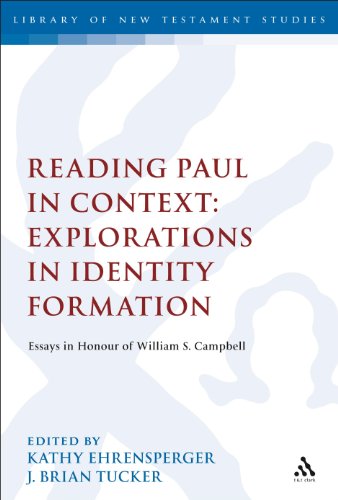But this is the point that is (or should be) both patently obvious and thoroughly heeded. Stegemann notes:
Reading Romans in a Roman imperial context does not exclude the recognition that Paul's words and message belong at the same time and to an even greater extent to a Jewish cultural concept, more precisely to an 'apocalyptic' or 'theocentric' or 'messianic' Jewish language. Admittedly C. Bryan stresses this very difference in his critique of the counter-imperial reading of Paul, 'Christians were using some of the same words about Jesus as pagans used about Caesar, but they were hardly using them in the same context, or meaning anything like the same thing by them.' But Jewish culture and especially its 'apocalyptic' or 'messianic' version in some sense represents imperial rhetoric too. (6, citing C. Bryan, Render to Caesar: Jesus, the Early Church, and the Roman Superpower [Oxford: Oxford University Press, 2005], 91)
I'm not sure how "precise" the language of apocalyptic, theocentric, or messianic Judaism really is. But Stegemann rightly resists reading Paul in either Jewish or pagan contexts and understands him as operating as a Jew in a pagan context. To say things a bit differently, I don't think Paul used words like euangelion ("gospel"), kyrios ("lord"), pistis ("faith[fulness]"), etc. simply because these were the catchwords of Roman imperial rhetoric; these are terms that are clearly operative in his biblical/Jewish context. But neither was he unaware of the imperial employment of these terms. And I don't understand why we should think we need to choose between Jewish and Roman readings of Paul. At least since Martin Hengel's landmark study, Judaism and Hellenism (1974), we have known that these aren't two discrete cultural universes. Stegemann's study helps us see more clearly Paul, the Jewish philosopher/evangelist, as he was formed by and engaged with the Roman imperial context in which he lived his entire life and ultimately met his end.


No comments:
Post a Comment